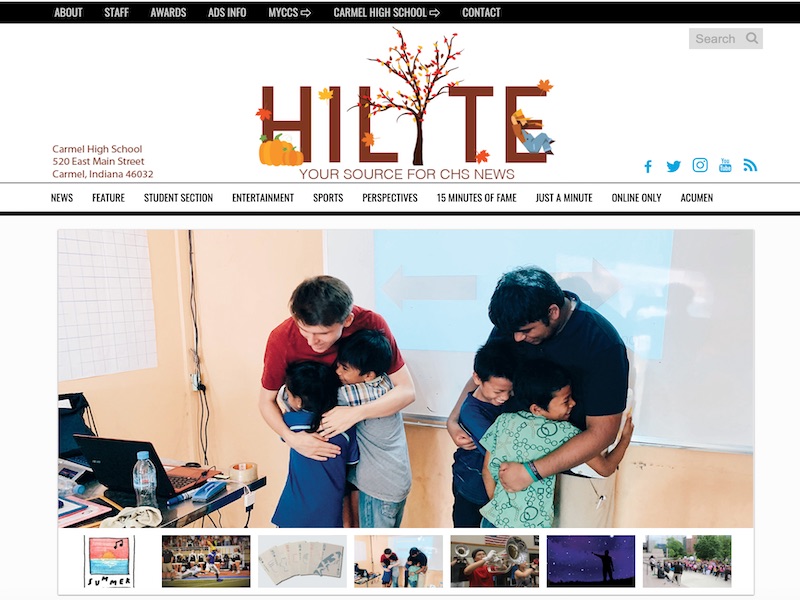An Unbiased View of News Websites
An Unbiased View of News Websites
Blog Article
Some Known Incorrect Statements About News Websites
Table of ContentsSome Known Incorrect Statements About News Websites News Websites Can Be Fun For AnyoneNews Websites Fundamentals ExplainedSome Known Details About News Websites 4 Easy Facts About News Websites Shown
It was down in the UK and Brazil but up a few other nations, such as Greece, Bulgaria, and Poland (News Websites). This year, for the very first time, we inquired about the various ways that people prevent the news and discovered that around half of avoiders (53%) were trying to do so in a broad-brush or routine means for instance, by transforming off the radio when the information came on, or by scrolling past the information in social mediaYou stated that you try to proactively prevent news.

I'm probably selecting to find out more light-hearted stories than I used to at the minute. M, 51, UK Switching my back on news is the only means I feel I can deal occasionally. I have to purposely make the initiative to turn away for my very own mental health and wellness.
The Buzz on News Websites
Discerning evasion of Ukraine news was greatest in a number of the countries closest to the conflict, enhancing searchings for from our extra survey last year, right after the war had actually started. Our information may not suggest a lack of rate of interest in Ukraine from neighboring nations yet instead a need to take care of time or safeguard psychological health from the extremely actual horrors of war.
Contrasting Finland with a politically polarised nation such as the USA (see next chart) that is less impacted by the war, we discover a really various pattern of subject evasion. In the United States, we discover that customers are more probable to stay clear of subjects such as national politics and social justice, where arguments over concerns such as gender, sexuality, and race have become extremely politicised.
American politics are quite toxic these days. I locate in some cases that I need to disconnect from stories that simply make me angry. F, 61, USA For some people, bitter and disruptive political arguments are a reason to switch off information entirely, but also for some political upholders, evasion is commonly about obstructing out point of views you do not wish to hear.

The 15-Second Trick For News Websites
Some are looking to make news extra obtainable for hard-to-reach groups, widening the news program, appointing even more inspiring or favorable information, or embracing positive or remedies journalism that provide individuals a sense of hope or individual company. In our study this year, we asked participants about their passion in these different strategies.
This describes why tales like Ukraine or national politics execute well with news regulars yet can at the exact same time transform less interested customers away (News Websites). Selective avoiders are less curious about all types of information than non-avoiders but in family member terms they do appear to be much more curious about positive or solutions-based information

An Unbiased View of News Websites
2023). This may hold true in the moment, but gradually it seems to be leaving many individuals empty and less pleased, which may be weakening our connection with and trust in the information. Across markets, general count on news (40%) and count on the sources people use themselves (46%) are down by an additionally 2 percentage points this year.
Through the rear-view mirror, the COVID-19 trust bump is clearly noticeable in the adhering to chart, though the direction of traveling after that has been mixed. Sometimes (e.g. Finland), the depend on boost has actually been preserved, while in others the upturn looks more like a blip in a story of ongoing lasting decline.
Several of article the highest reported levels of media criticism are located in nations with highest degree of question, such as Greece, the Philippines, the USA, France, and the UK. The lowest degrees of media criticism frequent those with higher degrees of trust, such as Finland, Norway, Denmark, and Japan.
Examine This Report on News Websites
This year we asked participants concerning their choices for message, audio and video clip when taking in information online. Generally, we find that the majority still favor to review the information (57%), as opposed to watch (30%) or pay attention to it (13%), yet more youthful people (under-35s) are more probable to listen (17%) than older groups.
Behind the standards we locate considerable and shocking nation differences. In markets with a solid reading custom, such as Finland and the UK, around 8 in 10 still choose to review on-line information, but in India and Thailand, around 4 in ten (40%) claim they like to view news online, and in the Philippines that proportion mores than half (52%).
Report this page